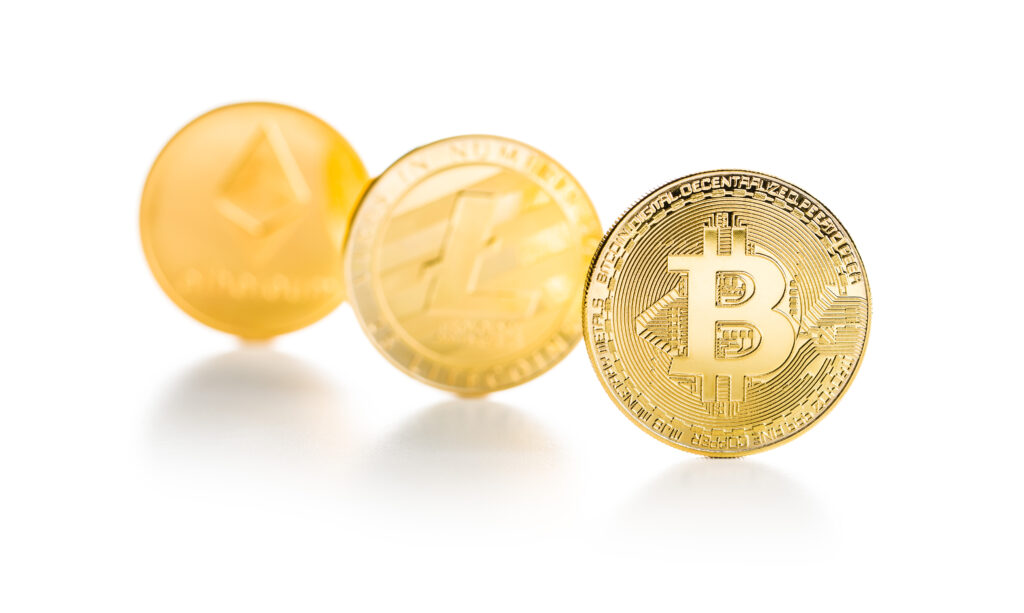Introduction
With the rise of cryptocurrencies, many individuals and businesses are seeking banking solutions that align with the crypto ecosystem. While traditional banks were initially hesitant about cryptocurrencies due to regulatory and volatility concerns, some forward-thinking financial institutions are now embracing the trend, offering Crypto Friendly Banks services to meet the evolving needs of their customers.
This article will dive deep into the crypto-friendly banking landscape using the PAS framework (Problem, Agitation, Solution). We’ll explore why people struggle with crypto acceptance in banking, how banks are transforming to meet those needs, and what you can do to bank smarter with crypto-supportive financial institutions.
1. Problem: Crypto Users Struggle with Traditional Banks
- Cryptocurrency Users Face Rejection or Restrictions:
- Many crypto traders and businesses report account closures after engaging in crypto-related transactions.
- Traditional banks are often wary of handling money related to crypto exchanges due to anti-money laundering (AML) and Know Your Customer (KYC) concerns.
- Lack of Transparency and Communication:
- Banks that are not crypto-friendly tend to limit crypto transactions without notice. This can leave customers in a tough spot, especially when handling large crypto-to-fiat conversions.
- Some financial institutions do not provide a clear policy on whether customers can connect their accounts to crypto exchanges or wallet services.
- Inconsistent Regulations:
- Depending on jurisdictions, unclear or changing regulations around cryptocurrency complicate the interaction between banks and crypto users.
- This inconsistency results in account freezes or blocked transactions, causing frustration for customers dealing with personal or business crypto holdings.
- Payment Integration Barriers:
- Businesses looking to accept cryptocurrency often struggle to find banks that facilitate easy crypto-to-fiat payment solutions, resulting in slow operations and potential revenue loss.
- Long Verification Times:
- When using crypto exchanges, customers might experience long waits for deposits or withdrawals, especially when banks impose additional scrutiny on these transactions.
2. Agitation: The Risks of Not Adopting Crypto-Friendly Banks
- Missed Opportunities in Investment and Payments:
- With banks limiting crypto interactions, individuals and businesses miss out on investment opportunities or face challenges in making timely trades and withdrawals.
- This creates a bottleneck, especially in volatile markets, where every second counts.
- Increased Operational Risks for Crypto Businesses:
- Businesses operating in crypto sectors (such as exchanges or NFT marketplaces) face operational risks if their bank suspends accounts or blocks transactions without warning.
- Failure to find a reliable crypto-friendly bank could result in downtime, affecting customers and profits.
- Added Costs and Hassle of International Transfers:
- Many crypto enthusiasts use international exchanges or wallets, but high transaction fees and currency conversion costs arise if local banks don’t integrate with these platforms.
- Delays and lost opportunities arise when international transactions take days to process due to poor cooperation between banks and exchanges.
- Trust Issues Between Users and Financial Institutions:
- Individuals who experience sudden account freezes or restrictions are less likely to trust banks with large sums of money.
- This lack of trust results in customers having to diversify funds across multiple banks, leading to greater complexity in managing personal finances.

3. Solution: Bank Smarter with Crypto-Friendly Banks
Crypto-friendly banks are bridging the gap between traditional banking services and the evolving demands of the digital asset world. Here’s how they stand out and how you can leverage them effectively:
3.1 What is a Crypto-Friendly Bank?
- A crypto-friendly bank is one that allows customers to interact seamlessly with cryptocurrency services, including:
- Connecting accounts to crypto exchanges and wallets for deposits and withdrawals.
- Offering cryptocurrency custody services for secure storage of digital assets.
- Providing crypto-to-fiat conversion support, simplifying payments and transactions.
- Supporting blockchain businesses with specialized services and merchant accounts.
3.2 Features of Crypto-Friendly Banks
- Integrated Exchange Support:
- Customers can link their bank accounts to exchanges such as Coinbase, Binance, Kraken, and others for direct deposits and withdrawals.
- Case Study: Revolut, a neo-bank based in the UK, allows users to buy, hold, and sell cryptocurrencies directly from its app. With Revolut, crypto enthusiasts no longer need to depend on third-party apps to access their digital assets.
- Crypto Custody Services:
- Some banks provide custody services, ensuring cold storage solutions for large crypto investors and institutions.
- Example: US Bank partnered with NYDIG to offer custody services for institutional investors, ensuring a safer and more regulated environment for handling crypto assets.
- Multi-Currency Accounts for Crypto Traders:
- Banks offer accounts that support both fiat currencies and cryptocurrencies, enabling users to convert or manage funds seamlessly.
- Example: Bank Frick in Liechtenstein supports accounts in both fiat and crypto, allowing businesses and individuals to move between the two worlds efficiently.
- Support for Blockchain Businesses:
- Some crypto-friendly banks go beyond personal banking by offering specialized business accounts for blockchain startups and crypto exchanges.
- Case Study: Silvergate Bank in the U.S. has established itself as a leader in the space, providing accounts for crypto businesses and enabling real-time USD transactions with its SEN (Silvergate Exchange Network).
- DeFi Integration for Yield Generation:
- A few banks are exploring integration with decentralized finance (DeFi) protocols to offer customers higher yields on deposits.
- Example: Nuri Bank in Germany allowed customers to earn interest on Bitcoin holdings before it ceased operations in 2022. This showed early signs of DeFi integration into traditional banking systems.
- Transparent Fees for Crypto Transactions:
- Crypto-friendly banks offer clear fee structures when dealing with cryptocurrency exchanges, ensuring customers are not hit with unexpected charges.
- Example: Revolut provides transparent crypto conversion rates, with details on spreads and fees shown in-app before executing a trade.
3.3 Crypto-Friendly Banks to Consider in 2024
- Revolut (UK and Europe):
- Offers a seamless in-app experience for trading and storing cryptocurrencies.
- Provides support for multiple fiat currencies, crypto trading, and instant exchange-to-bank transfers.
- Silvergate Bank (USA):
- Specializes in serving crypto businesses and offers real-time settlement networks.
- Provides dedicated accounts for blockchain companies and exchanges, enabling fast payments and settlement.
- Bank Frick (Liechtenstein):
- Known for its crypto-friendly approach, offering both fiat and crypto accounts.
- Facilitates cross-border crypto payments and supports blockchain businesses.
- Fidor Bank (Germany):
- One of the first European banks to embrace crypto, allowing customers to trade directly through their platform.
- Supports integrations with exchanges and offers multi-currency accounts.
- US Bank (USA):
- Provides custody solutions for institutional investors through partnerships with crypto firms like NYDIG.

3.4 How to Choose the Right Crypto-Friendly Bank for You
- Evaluate Integration with Crypto Platforms:
- Does the bank allow easy transfers to and from exchanges? Check compatibility with popular platforms like Coinbase, Binance, or Kraken.
- Look for Transparent Policies:
- Review the bank’s policies regarding crypto transactions and ensure full transparency on fees.
- Assess Security Features:
- Choose a bank that provides robust security measures, such as custody services or cold storage options, to keep your crypto assets safe.
- Check Support for Your Business Needs:
- If you’re running a crypto-related business, ensure the bank offers specialized business accounts and real-time settlement options.
- Research Regulatory Compliance:
- Make sure the bank operates within regulatory frameworks that protect your assets and enable smooth crypto transactions without disruptions.
3.5 Tips to Bank Smarter with Crypto-Friendly Banks
- Keep Your Accounts Verified:
- Complete KYC (Know Your Customer) requirements promptly to avoid delays in crypto transactions.
- Diversify Your Banking Options:
- Use multiple crypto-friendly banks to mitigate risks of sudden account freezes or service changes.
- Monitor Exchange Rates and Fees:
- Take advantage of lower spreads and conversion fees by timing your transactions smartly.
- Stay Updated with Bank Policies:
- Policies around crypto evolve frequently—subscribe to your bank’s updates to stay ahead of any potential disruptions.
- Optimize for Business Growth:
- If you run a business, align with banks offering real-time payment solutions to speed up operations and cash flow.
Conclusion: Bank Smarter, Not Harder
The relationship between traditional banking and cryptocurrency is evolving, and finding the right bank can make all the difference in how effectively you manage your crypto holdings. Crypto-friendly banks provide enhanced support for individuals and businesses, ensuring seamless transactions, better integration with exchanges, and advanced financial solutions.
By understanding the benefits and challenges outlined here, you can bank smarter—choosing financial partners that align with your needs in the modern, crypto-driven economy. Stay informed, diversify your options, and leverage these banks to make the most of your crypto investments and operations.
Start your search today and experience the best of both worlds—secure, regulated banking and the boundless potential of cryptocurrency.
FAQS
1. What is a crypto-friendly bank?
A crypto-friendly bank is a financial institution that supports cryptocurrency transactions and services, such as deposits or withdrawals to exchanges, crypto custody, and crypto-to-fiat conversions. These banks often cater to individuals and businesses involved in blockchain, NFTs, and digital asset trading.
2. Why do some banks block crypto transactions?
Traditional banks often block crypto-related transactions due to regulatory concerns such as anti-money laundering (AML) laws, fraudulent activities, and unclear crypto policies. They may also fear volatility and insufficient oversight in the crypto market.
3. How do I know if a bank is crypto-friendly?
To find out if a bank is crypto-friendly:
- Check if the bank allows transfers to and from exchanges.
- Look for transparency regarding policies on cryptocurrency.
- Search if it offers custody services or business accounts for blockchain firms.
- Review online communities and user reviews for experiences with the bank.
4. Are crypto-friendly banks safe?
Yes, most crypto-friendly banks operate under strict regulatory frameworks, following both traditional banking laws and crypto-related compliance (AML and KYC). They often offer advanced security measures like cold storage for custody and support for safe transactions.

5. Can I link my crypto wallet directly to a bank account?
Some crypto-friendly banks allow direct connections to crypto exchanges and wallets. While wallets may not link directly to a bank, many exchanges (like Coinbase or Binance) provide easy integration with supported banks for deposits and withdrawals.
6. Which banks support cryptocurrency businesses?
Banks like Silvergate Bank, Bank Frick, and Fidor Bank offer specialized services for blockchain startups, crypto exchanges, and businesses involved with NFTs. These banks provide merchant accounts and real-time settlement networks to streamline operations.
7. What fees do crypto-friendly banks charge?
Fees vary by institution, but they generally include:
- Exchange transfer fees for deposits and withdrawals.
- Crypto-to-fiat conversion fees (usually a small spread).
- Some banks charge custody fees if they store large digital assets securely.
8. Can crypto-friendly banks help businesses with cross-border payments?
Yes, many crypto-friendly banks simplify cross-border payments by offering multi-currency accounts and supporting quick crypto-to-fiat conversion. Some banks also partner with exchanges to facilitate international transactions with lower fees.
9. How do banks ensure compliance with regulations when supporting crypto?
Crypto-friendly banks follow strict AML and KYC procedures to ensure transparency. They also partner with licensed crypto firms and comply with government regulations to reduce the risks of money laundering, fraud, and other illegal activities.
10. Are there risks associated with using crypto-friendly banks?
While crypto-friendly banks offer convenience, there are still risks, such as:
- Regulatory changes that may impact services.
- Market volatility leading to sudden disruptions in crypto services.
- Banks might place temporary holds on accounts for large transactions to ensure compliance. Diversifying your banking options can help manage these risks effectively.

